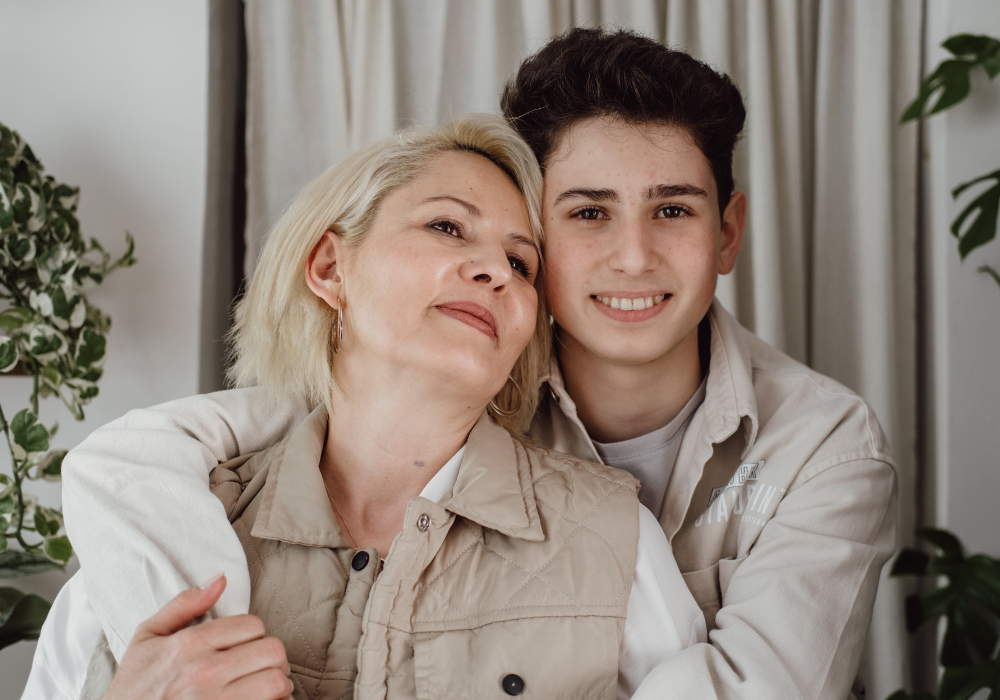They never learned how to deal with their feelings, and it’s wreaking havoc on their relationships today.

You might think you’ve figured out how to handle life by now, but if you’re a Boomer man, chances are there’s still one area that’s quietly undermining your peace of mind—your emotions. The culture you grew up in didn’t do you any favors when it came to understanding or expressing feelings. In fact, it probably did the opposite, pushing you to bury your emotions under layers of toughness and stoicism.
1. You Were Told Real Men Don’t Cry

As a kid, you probably heard that crying was something only weak people did—usually women and children. So, when the world hurt you, you clenched your jaw, swallowed your pain, and moved on without shedding a tear. That conditioning didn’t just stop because you got older; it stayed with you, influencing how you respond to grief, disappointment, and even joy.
2. Vulnerability Was Seen as Weakness

Chances are, if you ever tried to open up as a boy—maybe about fears, sadness, or confusion—you were told to toughen up. You learned quickly that exposing your feelings meant risking humiliation. Whether it was classmates mocking you or adults dismissing your pain, the lesson was clear: vulnerability could get you hurt.
3. You Had to “Man Up” No Matter What

No matter what life threw at you—loss, heartbreak, or failure—you were expected to keep going without flinching. “Man up” wasn’t just a phrase; it was a rule. Admitting that you were struggling wasn’t seen as honest—it was seen as weak. So you soldiered on, even when your heart was breaking.
4. Expressing Anger Was the Only Acceptable Emotion

Growing up, you may have noticed that while other emotions were frowned upon, anger was allowed—even expected. Anger didn’t make you look weak; it made you look powerful. So when sadness or fear crept in, you masked it with frustration or rage. Over time, anger became your go-to emotional response.
But anger is often just the tip of the iceberg. Underneath it could be grief, insecurity, or a desperate need for understanding. If your default setting is to snap, shut down, or push people away, it might be because you never learned any other language for your pain. And that can leave your loved ones feeling confused, hurt, or even afraid.
5. Emotional Intimacy Wasn’t Modeled at Home

If your father or male role models never talked about their feelings, you probably grew up thinking emotions were irrelevant or even dangerous. Maybe you were told to stop crying without ever being asked why you were upset. Or maybe you watched your parents deal with pain by pretending it didn’t exist.
That emotional void didn’t disappear when you left home—it became part of your emotional DNA. You may now find yourself unsure of how to respond when someone opens up to you or asks you to do the same.
6. You Were Expected to Be the Family’s Rock

As a man, your job was to be the stable one—the provider, the protector, the unshakable foundation. You learned to carry others’ burdens without complaint, even if it meant ignoring your own pain. Asking for help might have felt like letting everyone down.
Over time, that burden can become crushing. Always being the rock leaves no room for you to be human. It teaches you that your needs don’t matter, only your performance does. And when no one knows what you’re going through, loneliness sets in.
7. Sharing Feelings Was Labeled “Unmanly”

If you ever tried to talk about your fears or sadness and were met with “Don’t be such a girl,” it likely shut you down fast. That kind of shame sticks. You may have learned that it was better to be silent and stoic than risk being laughed at or judged.
The long-term effect of that? You may now struggle to express yourself, even with the people you love most. That silence creates distance, making your partner or friends feel like they can’t reach you. Opening up might still feel risky, but not doing so keeps you isolated. Emotional honesty is one of the most courageous things you can offer in a relationship.
8. You Were Praised for Stoicism

Showing no emotion—even in a crisis—was celebrated as the ultimate sign of manliness. You might’ve been called “strong” for not reacting to pain or “admirable” for not complaining. But that praise came at a steep cost: it taught you to suppress, not process, your emotions.
Suppressing your emotions doesn’t make them disappear. Instead, they fester beneath the surface, turning into chronic stress, anxiety, or even physical health issues. And emotionally, it leaves you disconnected—from yourself and from others. True strength isn’t about hiding pain—it’s about being honest enough to feel it and brave enough to share it.
9. You Learned to Distract Yourself from Pain

When emotions became overwhelming, you turned to distractions—maybe work, sports, alcohol, or constant busyness. It felt productive, even noble. And in the short term, it worked. You didn’t have to deal with the ache in your chest or the lump in your throat.
But avoidance only delays the inevitable. That pain didn’t disappear—it just got pushed down deeper, where it quietly influenced your behavior, mood, and relationships. Now, even small emotional triggers might feel outsized. Facing your emotions instead of fleeing from them is the only way to truly move forward and find peace.
10. You Were Programmed to Put Others’ Needs First

Being the “man of the house” often meant putting your family’s needs ahead of your own—no questions asked. You were praised for your selflessness, for your sacrifice. But no one told you that ignoring your own emotional well-being would eventually catch up with you.
That constant self-neglect can lead to burnout, resentment, or a sense of emptiness that’s hard to shake. You might not even recognize your own emotional needs anymore. Reconnecting with your feelings—and allowing yourself to prioritize them—isn’t selfish. It’s necessary. Because the better you care for yourself, the more fully you can show up for the people you love.
11. You Were Never Taught How to Process Emotions

Emotional education wasn’t part of the curriculum when you were growing up. No one taught you how to name your feelings, much less manage them. You were expected to just “get over it” or “suck it up,” even when your world felt like it was falling apart.
Without those tools, navigating adulthood becomes a minefield. You might struggle to express what you’re feeling or find healthy ways to cope with stress, grief, or disappointment. But the beautiful truth is this: it’s never too late to learn. Emotional growth isn’t reserved for the young. With a little intention and support, you can build a new, more emotionally fulfilling chapter of life.
